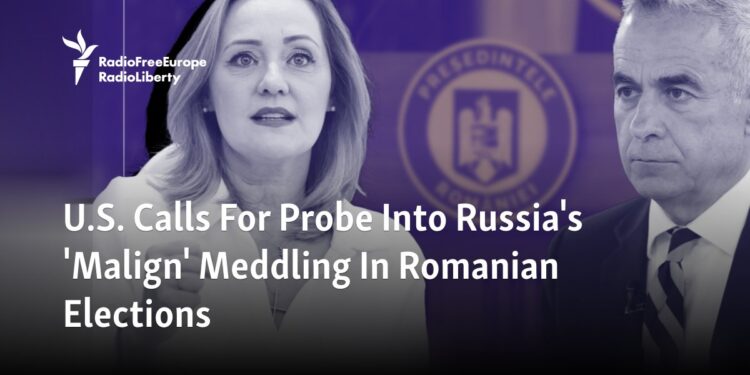Gvaramia’s lawyer, Dito Sadzaglishvili, said on Georgian television that during the arrest the policemen hit him repeatedly in the stomach, resulting in Gvaramia losing his breath for a few seconds.
Sadzaglishvili also said that Gvaramia learned that he was arrested for petty hooliganism and failure to comply with a police officer’s order by eavesdropping on the conversation of the police. These are commonly used administrative offenses. Sadzaglishvili said a hearing should take place within 48 hours.
Another prominent member of the Coalition for Change, activist Gela Khasaia, was also taken into custody during the police operation.
The crackdown extended beyond party offices. Law enforcement entered the home of Ilia Glonti, administrator of the Facebook platform Daitove. The platform is known for facilitating the coordination of protest activities, where organizers and participants share logistical details and updates about rallies.
Despite the growing protests, Prime Minister Irakli Kobakhidze has refused to back down and threatened to punish political opponents, whom he accuses of being behind violence that has occurred at the protests.
Security forces started dispersing demonstrators gathered in front of the parliament building after the Interior Ministry said some of them had insulted law enforcement officers and thrown various blunt objects, fireworks, and inflammable items in their direction.
Three influential U.S. senators — U.S. Helsinki Commission Co-Chairman Ben Cardin (Democrat-Maryland), Roger Wicker (Republican- Mississippi), and John Cornyn (Republican-Texas) issued a joint statement in support of the Georgian protesters and condemning the excessive use of violence by the government.
“The Georgian Dream’s move to abandon European Union membership negotiations is a profound betrayal of the Georgian people’s clear and overwhelming desire to embrace European values and institutions,” the three senators said in their statement.
“This is not the conduct of a government committed to democratic reforms and pluralism but of an insecure regime dragging Georgia toward Russian-style autocracy. These actions flagrantly violate international democratic norms and undermine the legitimate aspirations of the Georgian people,” the statement said, adding, “We strongly condemn the violence unleashed against peaceful protesters – tear gas, rubber bullets, water cannons, beatings, and mass arrests have no place on the streets of Tbilisi.”
Georgia’s ombudsman accused police of torturing pro-EU protesters.
Levan Ioseliani, whose role is to defend citizens’ rights, said he and his officials had met people subjected to “the harshest treatment” by police.
“In most cases, they have received serious injuries in the face, eye and head area, which practically excludes even the possibility that the police used the necessary, proportional force against them every time,” he said in a statement.
Protesters have described to RFE/RL the brutality employed by security forces against them.
“They were hitting us in the head,” protester Salome Zandukeli said, describing how she and a friend had been chased on the night of December 2 by some 25 riot police into a building in downtown Tbilisi before taking refuge in a cafe.
Activist Gia Jvarsheishvili told RFE/RL that he was thrown to the ground by charging officers and beaten before being shoved into a police van where police pushed detainees to the floor and began stomping on them.
“Suddenly, I was in unbearable pain and I realized that I had been injured. I didn’t know it then, but I had a broken rib,” Jvarsheishvili said.
Georgia’s pro-European president, Salome Zurabishvili, who has sided with the demnstrators, said on X that many of the arrested protesters had injuries to their heads and faces. Some people were subjected to systematic beatings between arrest and transportation to detention facilities, she added.
Georgia has been thrown into turmoil since parliamentary elections in October in which Georgian Dream secured 54 percent of the vote. The opposition and Western governments argued that the poll was marred by violations and Russian influence.
Kobakhidze has blamed the unrest on foreign “instructors” and tried to explain the decision to halt EU accession talks through 2028 by saying Georgia is ready for the talks, “but only with dignity and justice and without blackmail.”
Ukrainian President Volodymyr Zelenskiy criticized the crackdown on protesters and accused the country’s leaders of “pushing the country into obvious dependence on Russia.”
When the Georgian government receives praise from Moscow “it clearly shows who they are working for in Tbilisi and who the protests are being dispersed for,” Zelenskiy said in his evening address.
He added that Ukraine was working with European countries on a response and he has “given the order to prepare appropriate sanctions resolutions.”
A majority of Georgians support EU membership, and efforts to join the bloc are mandated in the Georgian Constitution.
Georgia received EU candidate status in December 2023 but relations with Brussels have soured in recent months, beginning with the adoption of a Russian-style “foreign agent” law, which critics say threatens media outlets and civil society groups. accusing them of “serving” outside powers.
Source link : http://www.bing.com/news/apiclick.aspx?ref=FexRss&aid=&tid=675166ef089e4bcebd81073a52a573f2&url=https%3A%2F%2Fwww.rferl.org%2Fa%2Fgeorgescu-miller-romania-election-%2F33227618.html&c=17948684123763983578&mkt=de-de
Author :
Publish date : 2024-12-05 00:18:00
Copyright for syndicated content belongs to the linked Source.


